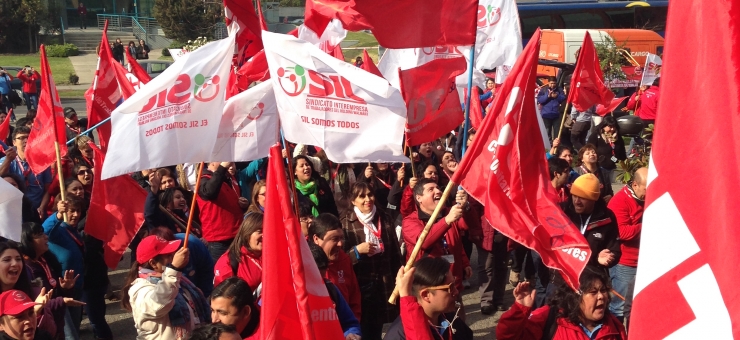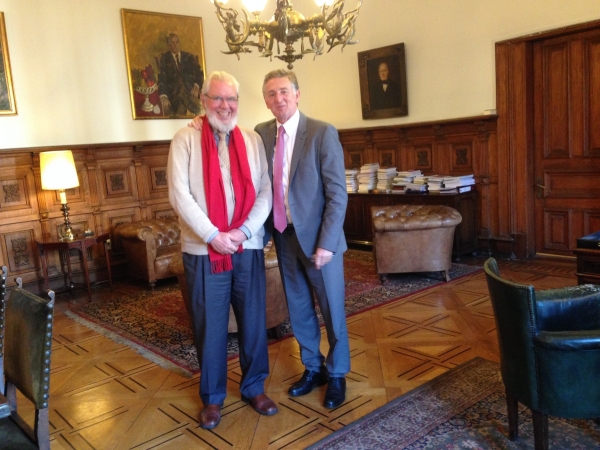Chile: “must bridge the inequality gap through stronger bargaining powers for unions”

During a recent visit to Chile, UNI General Secretary Philip Jennings said labour reforms must help bridge the country’s inequality gap.
Jennings, along with UNI America’s Regional Secretary, Adriana Rosenzvaig met with the Chilean Minister of Labour, business groups, the CUT union centre and affiliates. He emphasised the importance of the country’s new Labour Reform laws to deliver stronger bargaining powers for unions.

Jennings said, “The top 1% in Chile have 30.5% of all income and the top 0.01% have 10%. This level of inequality is unacceptable and can only be tackled through the strengthening of union power. At a time when other countries, such as the UK are intent on battering unions and working people, Chile’s labour law reforms, currently before the Senate, are a step in the right direction - though clearly more need to be done to stop the race to the bottom. The greatest shortfall is that the law does not oblige industry-wide bargaining and has not addressed the serious fragmentation in union representation.”
The new law before the Senate:
- gives legal clout to unions as the only recognised body for collective bargaining purposes;
- bans parallel negotiations with non-union groups when a union is present;
- gives unions the authority to decide if agreements should be extended to all workers;
- enables enterprise-wide bargaining;
- makes striker replacement illegal;
- obliges unions to include women in their negotiating delegations;
- specifies that the partners cannot bargain below the previous collective bargaining agreement; the existing CBA is a floor for the next negotiations;
- enables apprentices and temporary workers to bargain collectively.
Jennings added, “Democracy only returned to Chile in 1990 but the long shadow of the Pinochet dictatorship remains. Recall that over 3,000 Chileans lost their lives; tens of thousands were arrested and more went into exile. It is remarkable that even after 25 years of democracy some of the Pinochet edifice remains. President Bachelet has set the nation on a reform programme to rupture with the lingering legacy of the past. The necessity of these reforms must not be sidetracked by the current wave of scandals.”
Reform programme four pillars
- Labour law reform, where the bill now sits in the Senate;
- Constitutional reform, where the process will begin in earnest later in the year;
- Tax reform, where a new law has been passed;
- Education reform to open the education system to provide all Chilean children with quality schooling.
During talks with the Labour Minister, Jennings also brought up Prosegur’s appalling record in Chile and the recent 54 day strike by workers intent on making the company live up to its responsibilities.
Jennings and the UNI delegation also met with Hugo Muñoz, President of the Prosegur Union.
Jennings said, “The workers survived by doing all kinds of jobs including selling peanuts in the streets and in football stadiums. ‘Our salaries are so poor it was not difficult to survive’, one worker told me. UNI stands in solidarity with all workers who Prosegur continues to oppress in Chile and across Latin America.”
Jennings also addressed a rally outside Walmart headquarters in the Santiago business park, and joined the union delegation, which included the CUT President Barbara Figueroa, to meet Walmart management. The meeting was to receive the response of Walmart to the demands submitted by the unions led by SIL in what would be a landmark national agreement.
Over the two day visit Jennings held talks with many of UNI’s Chilean affiliates and praised them for making a real difference on the ground.

Finally, Jennings met up with an old friend of the UNI family, former ILO Director General Juan Somavia who heads the Academia diplomatique de Chile, and remains a special adviser to the UN Secretary General and to the President of Chile.

